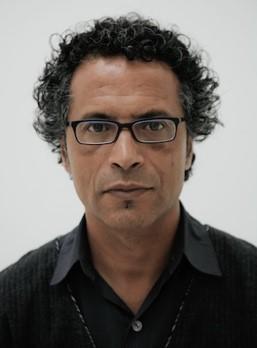Taoufik Ben Amor (Columbia University)
Senior Fellow in Research Area 3: "Future Perfect"
July 2024
Listening to the Past
During World War I many North and West Africans were conscripted by the French to fight in battles across Europe. Many became prisoners of war detained in German camps. In a joint Ottoman-German Jihād propaganda campaign, with the aim of inciting Muslim soldiers to defect from the Triple Entente armies and fight against the French and the British, almost 5,000 mostly Muslim detainees were assembled in the notorious Halbmondlager in Wünsdorf and allowed to build a mosque and conduct their prayers. One can hardly consider these captives "volunteering" subjects, but, despite moral questions, the Preußische Phonographische Kommission judged conditions to be "favourable" and made 1,650 voice recordings, including songs, poems, riddles, proverbs and stories now housed in the Lautarchiv of the Humboldt Forum.
Although some research has been conducted at the archive, two major tasks remain. First, the groundwork of transcribing, transliterating and translating these recordings needs to be accomplished. Only a few pieces have undergone this process, often inaccurately. This groundwork would allow for more accessibility to the archive even from a distance and a basis for more theorising on its organisation and re-organisation. Second is the complex task of unravelling the entangled question of the colonial archive, for it is at once "archival" and "colonial": archival in its way of constructing itself and legitimising its existence in relation to the world outside of it, and colonial in the way it served the interests of Empire, with a host of ethical implications. The colonial archive is at once temporal, collecting what was then the "present", and atemporal because what was present would soon become "past", a timeless, frozen moment for posterity, samples to be studied in due time. Although the archive claims to be about the past, a system of preserving knowledge, it is rather about the future, a future that is vulnerable to evolving ideologies.
Taoufik Ben Amor is Gordon Gray Jr. Senior Lecturer in Arabic Studies at Columbia University. His research interests focus on the intersection of language, music and subjectivities. He has published three textbooks, including Developing Writing Skills in Arabic (Routledge, 2012), a series of Arabic grammar lectures entitled Al-Manḥā published on YouTube (2015-17) and a number of papers including "Language Through Literature" and "Making Tradition: Standardization of the Tunisian Andalusian Mālūf Repertoire" as well as "I shall not speak your language." (PMLA October, 2022). He is currently working on a book entitled Beyond Orientalism: Arab Music and Modernity, to be published by Brill in 2025. He is also an active musician, music producer and the director of the Columbia Arab Music Ensemble.
